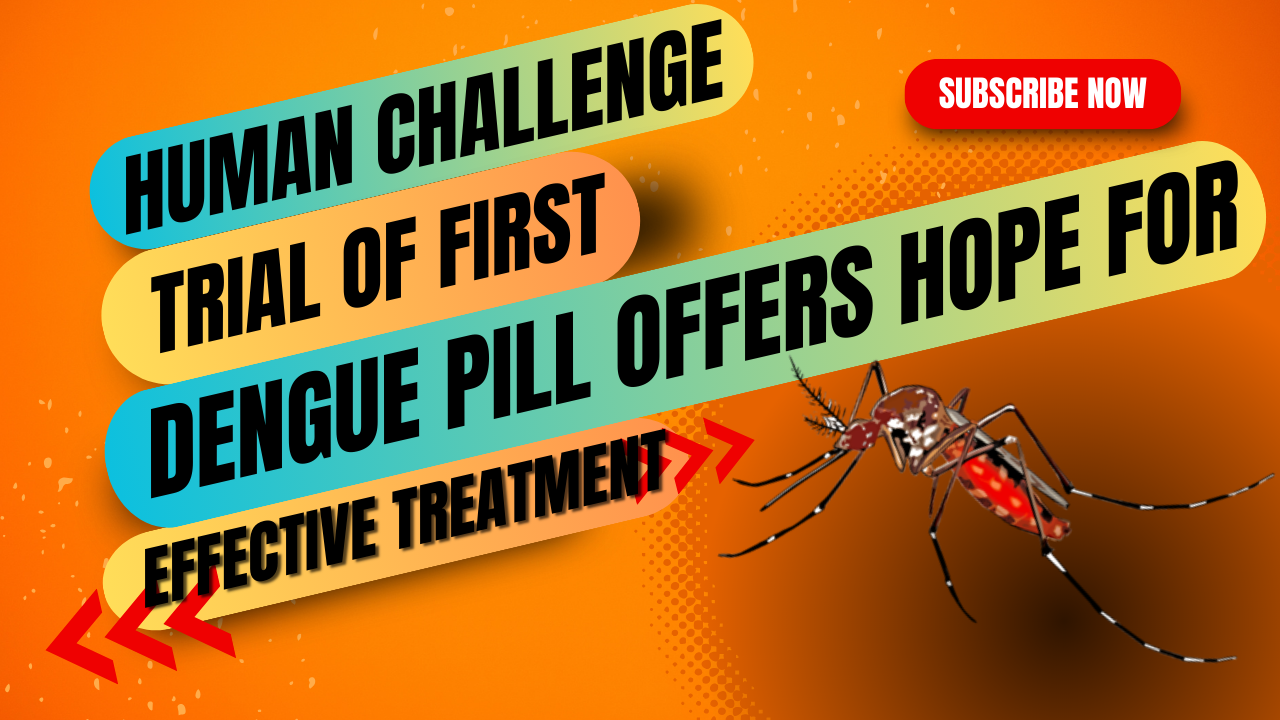The first dengue medication seems promising in a human challenge study.
Prior to presenting the research at the American Society of Tropical Medicine and Hygiene Annual Meeting in Chicago, the business said that there are presently no particular medicines for dengue, an increasingly serious disease concern.
Data released by the business on Friday showed that a Johnson & Johnson dengue fever medication seemed to shield against a strain of the virus in a limited number of patients in a small human challenge experiment in the United States.
Prior to presenting the research at the American Society of Tropical Medicine and Hygiene Annual Meeting in Chicago, the business said that there are presently no particular medicines for dengue, an increasingly serious disease concern.
According to Marnix Van Loock, who is in charge of J&J's Janssen division's research on emerging infections, "it is the first ever to show antiviral activity against dengue."
In human challenge trials, scientists purposefully expose healthy volunteers to a virus in order to test a therapy or vaccine or to learn more about the sickness the pathogen causes.
The term "break bone fever" refers to the extreme joint pain and spasms that some dengue fever patients may suffer, despite the fact that the illness is often asymptomatic.
The chief scientist of the World Health Organization, Jeremy Farrar, stated earlier this month that the disease has long been a plague throughout much of Asia and Latin America, resulting in millions of infections and tens of thousands of deaths annually. Furthermore, he predicted that it would continue to spread as more areas become hospitable for the mosquitoes that spread it due to climate change.
In the study conducted in collaboration with the Johns Hopkins Bloomberg School of Public Health, ten participants received a high dosage of the J&J tablet five days before receiving an injection of a dengue strain. After that, they kept taking the medication for another 21 days.
During the course of the 85-day monitoring period, none of the 10 individuals had any detectable dengue virus in their blood after their exposure to the pathogen, nor had they shown any indications of an immune response to the viral infection.
Test results for six individuals in a placebo group who also received dengue injections revealed a detectable virus. When required, trial participants got regular treatment from medical experts, and a weakened form of the virus was utilized to reduce symptoms.
The tablet is now undergoing Phase II studies to prevent the four main forms of dengue in an environment where the illness is prevalent, and J&J noted that the encouraging preliminary results support these efforts. Testing it as a therapy will be the next stage.
The medication stops two viral proteins from doing their job, which stops the virus from replicating. According to J&J, every study participant accepted it well.
In many of the low- and middle-income nations where medicine is most required, access to the new treatment will be a crucial concern for the future if it proves effective on a broader scale. This is similar to the problem the WHO endorsed earlier this month for the dengue vaccine.
Van Loock said, "We're working on it," but it was still early.
1. Understanding Dengue Fever:
Dengue Fever: Dengue fever is a mosquito-borne viral infection that causes flu-like symptoms, including high fever, severe joint pain, headaches, and skin rashes. In severe cases, it can lead to hemorrhagic fever and organ damage, posing a significant threat in many parts of the world.
2. Significance of a Dengue Pill:
Effective Treatment: The development of a dengue pill represents a potential breakthrough in the treatment of dengue fever. Currently, there is no specific antiviral treatment for dengue, and management primarily involves supportive care.
3. Human Challenge Trials:
Purpose: Human challenge trials involve deliberately infecting participants with the dengue virus to study the disease and test potential treatments or vaccines in a controlled environment.
Rigorous Testing: These trials are conducted under strict ethical guidelines and offer a way to accelerate the testing of new treatments and vaccines in a controlled setting.
4. Hope for Effective Treatment:
Promising Results: If the human challenge trial for the dengue pill shows positive results, it could pave the way for an effective and specific treatment for dengue fever.
Reduced Severity: An effective treatment could reduce the severity and duration of the illness, improving the quality of life for patients and potentially reducing mortality rates associated with severe dengue cases.
5. Impact on Global Health:
Global Impact: Dengue fever affects millions of people worldwide, especially in tropical and subtropical regions. An effective treatment could significantly impact public health in these areas, reducing the burden on healthcare systems.
6. Continued Research and Development:
Encouraging Further Research: The success of a dengue pill could encourage further research into antiviral treatments for other mosquito-borne illnesses, contributing to the overall progress in the field of virology and infectious diseases.
7. Importance of Preventive Measures:
Complementing Prevention: While the development of a dengue pill is promising, it's important to note that preventive measures such as mosquito control, proper sanitation, and public awareness campaigns remain crucial in the fight against dengue fever.
In conclusion, the initiation of a human challenge trial for the first dengue pill offers hope for an effective treatment against dengue fever. If successful, this advancement could significantly impact global health, providing relief to millions of people affected by this debilitating disease. Continued research, ethical trials, and a comprehensive approach combining prevention and treatment efforts are essential in the ongoing battle against mosquito-borne illnesses like dengue fever.
